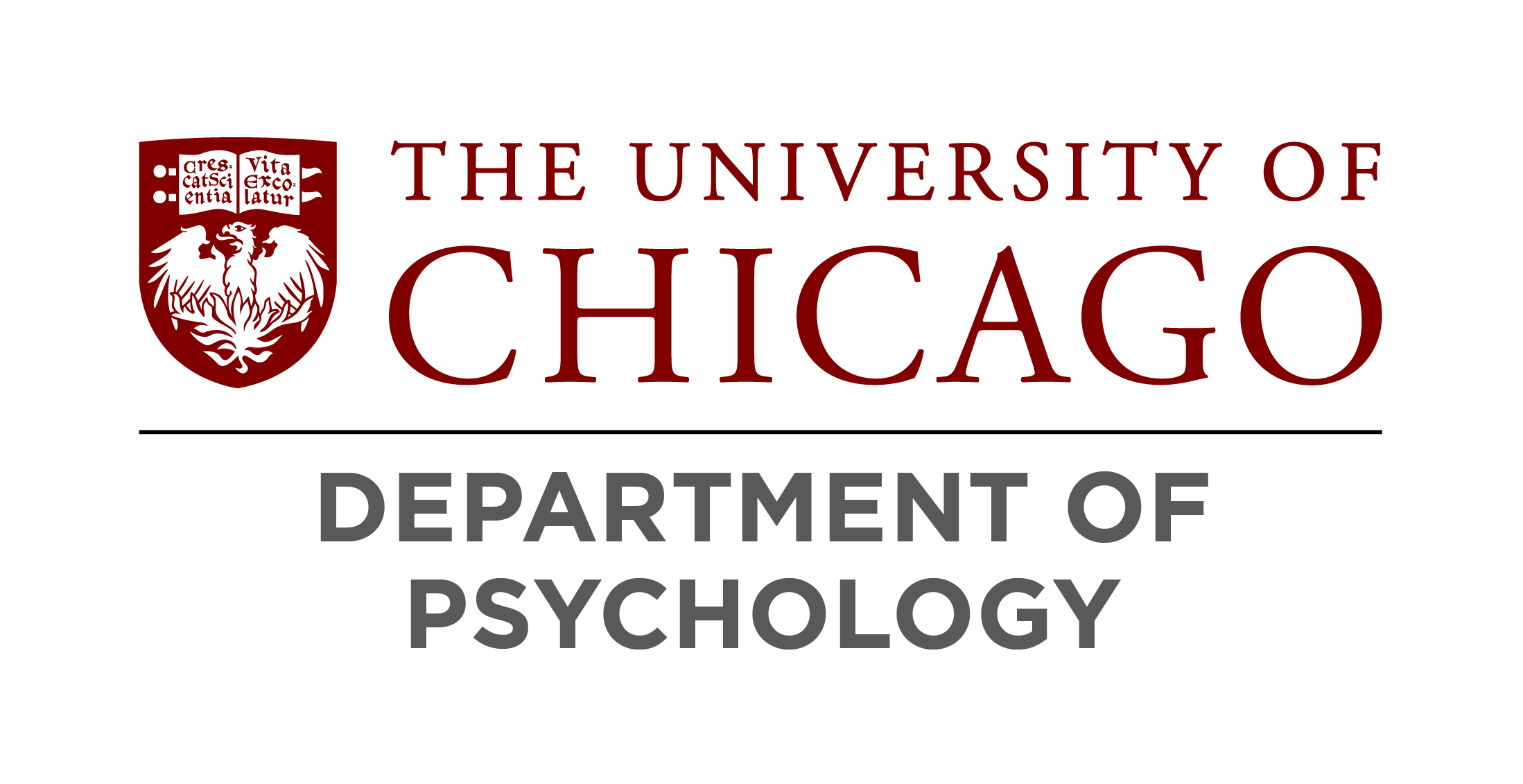Cognition
There are three elements in the graduate curriculum of the Cognition Program:
1. Departmental curriculum. Students must complete the departmental common graduate curriculum including courses, research requirements and mentored teaching experiences.
2. Area courses. Three area-specific courses. The following list includes possible courses, including those that are not offered every year. The purpose of this requirement is to develop a deeper understanding of the theories and methods used to scientifically study cognition, and of how these approaches are central to many areas of psychological inquiry. Pre-approved courses include:
PSYC 30460 Understanding Practical Wisdom (Nusbaum)
PSYC 31900 The Neuroscience of Narratives (Leong)
PSYC 34810 Neuroeconomics (Bakkour)
PSYC 36520 Mind, Brain, and Meaning (Kay et al.)
PSYC 37400 Long Term Memory (Gallo)
PSYC 40107 Behavioral Neuroscience (Margoliash)
PSYC 41116 Social Cognitive Development (Shaw)
PSYC 41135 Electrophysiological Studies of Hierarchical Memory Representations (Awh)
PSYC 42350 Advanced Topics in Human Neuroimaging (Bainbridge/Rosenberg)
PSYC 42570 Integrating the Real World into Perception and Memory (Bainbridge)
PSYC 42950 Memory and Decision Making (Bakkour)
PSYC 43200 Language Development (Goldin-Meadow)
PSYC 43760 Sensitive Periods: How the Timing of Experience Alters Its Effect (London)
PSYC 43780 Basics of Conducting EEG and ERP Research (Vogel)
PSYC 43921 Current Topics in Working Memory (Awh)
PSYC 45500 Cognitive and Social Neuroscience of Aging (Gallo)
Students may also propose other courses to count as fulfilling area requirements. Requests for a new course to be approved should be submitted to the Cognition area chair before taking the course. Requests will be considered on a case-by-case basis.
3. Advanced courses and seminars. Students are strongly encouraged to attend departmental colloquia and weekly workshops in their area of interest. The workshop method is one of the unique aspects of a UChicago education, allowing faculty and students the opportunity to explore and challenge new ideas. The Cognition area workshop is Cognition Workshop. Students are also encouraged to attend seminars and workshops from outside their specific area. Relevant talks may include the Neuroscience Institute Seminar Series, Social Talk Series, Developmental Brown Bag, Institute for Mind and Biology Proseminar, and talks hosted by the Roman Family Center for Decision Research.
 THE UNIVERSITY OF CHICAGO
THE UNIVERSITY OF CHICAGO

